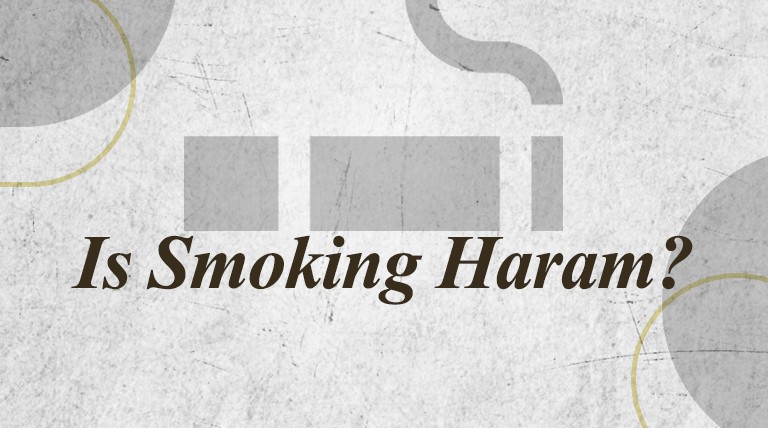Is Smoking Haram?

At some point, Muslims have probably asked themselves, “Is smoking haram?” After all, smoking seems to be shared across cultures around the world, as millions of people are regular tobacco users. And the CDC reported that, as recently as 2022, approximately 11% -12,5 % of adults smoked cigarettes regularly.
Though Islam encourages caring for the bodies with which God blessed us, some Muslims give in to smoking for the same reasons as the general public: stress, bad habits formed during adolescence or adulthood, and a simple nicotine addiction that can be difficult to break.
The responses by our jurists to this question varied over the years. In this article, we will clarify the view of Sayyid Sistani on the matter.
Can Muslims smoke?
So can Muslims smoke? For followers of Sayyid Sistani, the answer to the question requires us to look at its harmful effects. Here is a series of questions posed to Sayyid Sistani along with his answers:
- Considering the harmful health effects of smoking, what are the rules for different types of smokers according to Sharia law?
It is haram (forbidden) to take up smoking if it could lead to serious health issues in the future, like severe damage to one’s organs. This is even if we are not necessarily confident that such harm will occur. Meanwhile, If someone is already addicted to smoking, they must quit if continuing is likely to cause serious harm, unless quitting poses a similar or greater risk, or is exceptionally difficult.
- Is smoking haram in public?
One may not smoke in public if it causes serious harm to others. It is obligatory to ask for permission before smoking in someone’s home.
- Is it permissible to ignore “No Smoking” signs in places of public transportation?
If the sign is an additional condition for riding the vehicle, or it is an official by-law of the government, and the passenger has committed to abide by the official laws, he must act according to that condition and his undertaking.
- What does Islamic law say about using and smoking narcotic drugs, due to their known serious harm to individuals and society?
Islamic law strictly prohibits the use of narcotic drugs because of the significant harm they cause. This prohibition is mandatory unless the drugs are used for legitimate medical purposes, in which case they should only be used as necessary.
Contact us here if you have further questions about smoking.
Is smoking a sin in Islam?
Okay, so, after all that, is smoking a sin in Islam? With all the scientific evidence currently available about smoking, we can assess the damage it does to one’s body. According to the CDC, smoking harms nearly every organ of the body. It also:
- Causes nearly one in five deaths in America
- Increases the risk of lung cancer by 25 times
- Increases the risk of stroke and coronary heart disease by two to four times
So the answer to “Is smoking haram?” is that if one thinks there is a reasonable chance that it will cause such harm to one’s body, then yes, it is haram. Self-harm contradicts the teachings of Islam, which emphasizes the preservation of health and life. Remember that God has said in the Quran, “And do not end your own lives. Indeed, God is to you ever Merciful” (Quran 4:29).
Is Smoking Haram or Makrooh? Is There Any Flexibility?
Some scholars say that smoking is only haram if it causes damage but should be avoided regardless. This nuance was perhaps more appropriate at a time when the harmful effects of smoking were not fully understood. Today, though, the severe health risks associated with smoking are well known.
As a result of this scientific evidence, some scholars have outright prohibited smoking. This is in keeping with the famous words attributed to Prophet Muhammad (pbuh&hp), “There is no harming nor causing harm to others in Islam” (Kanz al-Ummal). This phrase has been used as a general principle for several rules in Islamic law.
Can Muslims Smoke?
It is advised that Muslims avoid smoking. The Islamic principle of preserving health and well-being is paramount, and engaging in activities that cause harm contradicts this principle. While individual practices may vary, and some Muslims may struggle with smoking addiction, the overarching guidance is to seek support and strive toward quitting.
Numerous resources, such as smoking cessation programs and support groups, can assist individuals in their journey to quit smoking. The intention and effort to stop smoking align with the Islamic values of self-improvement and caring for one’s health.
Is Smoking Haram in the Quran?
While the Quran does not explicitly mention smoking, its principles provide a framework for determining its permissibility. The prohibition of self-harm, as outlined in Quran 4:29, serves as a foundation for considering smoking as haram.
Is Smoking Haram?
So, is smoking haram according to Grand Ayatullah Sayyid Ali Husseini Sistani? The marja has clearly expressed his views regarding smoking: if smoking proves to be seriously harmful to one’s health, then it becomes haram. The rationale behind this position is that Islam does not allow us to seriously harm the bodies God has given us.
Smoking, as mentioned above, is known to cause a myriad of health problems, including, but not limited to, heart disease, various types of cancer, and respiratory issues. So the believer should consider this as well as Sayyid Sistani’s fatwa when making a decision about smoking.
Reach out to us here with your religious questions, and we’ll get back to you soon insha’Allah!

Leave a Comment:
You must be logged in to post a comment.